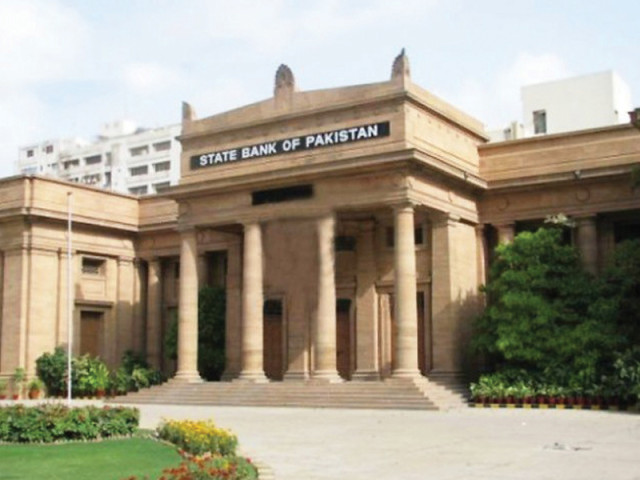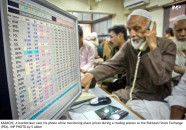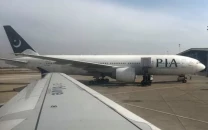Bumpy start: Currency swap deals, forward contracts have flaws
IMF says these arrangements expose Pakistan to risks.

By excluding reserves on account of forward contracts, currency swap arrangements and payments to the IMF, net reserves of the central bank stood at minus $2.437 billion at the end of June this year. Within a year, the central bank would have to arrange about $5 billion to reverse the trend. PHOTO: FILE
The International Monetary Fund (IMF) has found fault with the State Bank of Pakistan’s policy of using bilateral currency swap agreements and forward contracts to shore up dwindling foreign currency reserves and has asked the central bank to scale back such arrangements.
The IMF staff expressed concern over the SBP’s heavy reliance on short-term currency swap agreements and forward contracts to boost gross reserves, according to an IMF report. It told the Pakistan authorities that these arrangements were exposing the country to risks.
The report said that at the end of June this year, about 58% of total reserves either belonged to commercial banks or China. The SBP had borrowed $2.3 billion from the banks in short-term forward contracts while $871 million was added to the reserves by using a Chinese trade financing facility.
There have been news reports that the SBP had taken risks by heavily banking on forward contracts and currency swap arrangements to build fast depleting reserves. The SBP never confirmed nor denied such reports but the IMF findings indicated that the central bank was using a flawed strategy to artificially top up its reserves.
In May this year, Pakistan got a Chinese trade financing facility in a bid to boost foreign currency reserves. Reserves dropped because of increasing debt payments to international lenders and consumption of about $3.5 billion by the SBP to defend the rupee ahead of May 11 general elections.
The Pak-China currency swap agreement was actually meant to promote bilateral trade and investment and strengthen financial cooperation. The three-year accord was expected to facilitate traders from both sides. But Pakistan authorities asked China to activate the credit line following a sharp fall in its reserves.
The IMF report pointed out that Pakistan had agreed to gradually reduce the SBP’s short-term currency swap and forward foreign exchange positions to more sustainable levels.
If the SBP starts returning dollars borrowed from commercial banks, it will have to mop up more dollars from the money market to avert any adverse impact, according to sources. Buying dollars from the market is part of the IMF strategy to build reserves.
According to the IMF, Pakistan’s reserves were already well below the lender’s reserve adequacy metric, which for a floating exchange rate regime is estimated at $13.7 billion. Current foreign currency reserves held by the central bank were even below one and a half month of imports, it said.
By excluding reserves on account of forward contracts, currency swap arrangements and payments to the IMF, net reserves of the central bank stood at minus $2.437 billion at the end of June this year, said the IMF. Within a year, the central bank would have to arrange about $5 billion to reverse the trend, it said.
As against the negative net reserves, the SBP is bound to take them to positive $2.532 billion, which will require an additional $4.969 billion. Taking the reserves to that level is a quantitative performance criterion which along with some other criteria will pave the way for the loan tranche, scheduled to be released after completion of fourth review. The fourth review will lead to release of the fifth tranche of about $545 million.
The SBP will rely on multiple sources including IMF loans and market operations to achieve the results, as desired by the IMF.
Published in The Express Tribune, September 19th, 2013.
Like Business on Facebook, follow @TribuneBiz on Twitter to stay informed and join in the conversation.


















COMMENTS
Comments are moderated and generally will be posted if they are on-topic and not abusive.
For more information, please see our Comments FAQ